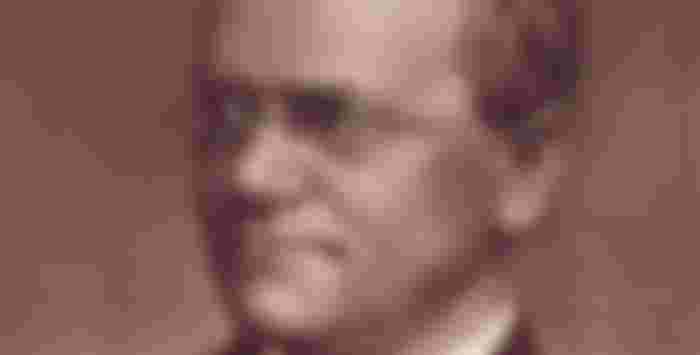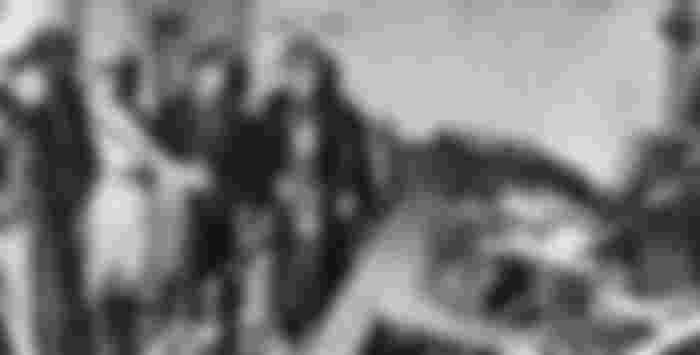Project History (July 20)

EUGENIO LOPEZ, SR. WAS BORN
July 20, 1901

On July 20, 1901 the broadcasting and publishing executive, Eugenio "Eñing" Lopez, Sr. was born in Jaro, Iloilo. He is the son of former Iloilo governor Benito Villanueva Lopez, and Presentacion Javelona Hofileña.
He had four children (Eugenio, Jr., Oscar, Manuel, and Presentacion) with his wife Pacita Moreno Lopez.
From a wealthy family, Eugenio, Sr., known as “Eñing” ventured out and built a business in the fields of transportation, communications, and commerce. After World War II, he bought the newspaper The Manila Chronicle, and he founded the TV network Chronicle Broadcasting Network (CBN). On February 24, 1957, Eñing acquired ownership of the Alto Broadcasting System (ABS). This paved the way for the establishment of ABS-CBN which is considered the largest broadcasting company in the Philippines.
Eugenio, Sr. passed away at the age of 74. on July 7, 1975 at French Hospital (currently Kaiser Permanente French Campus) in San Francisco, California due to cancer.
GREGOR MENDEL WAS BORN
July 20, 1822

Today is the 199th birthday of the Augustinian priest and considered the “Father of Genetics” Gregor Johann Mendel or simply Gregor Mendel. He was born in 1822 as Johann Mendel in a small town formerly a province of Moravia-Silesia of the Austro-Hungarian Empire that is now part of the Czech Republic, and from a family of German speakers. He was one of the children of Anton and Rosine Mendel, and at the age of 11 he became a scholar of a secondary school and graduated in 1840 despite the hardships of his family's life. He graduated from the Philosophy course in 1843 at the University of Olmutz, despite suffering from depression and repeated dropouts.
Despite his father's opposition to managing his family's farm, he entered the monastery at St. Thomas Monastery in Brno, Switzerland, where he became aware of scientific activities and experiments in the monastery. After failing to obtain his teaching license, he entered the University of Vienna to study mathematics, physics and botany. While given the opportunity to teach in a secondary school in Austria, it was here that his experiments that would make him famous began.
For nearly eight years, he studied the transmission of hereditary traits using cross-fertilization of peas with different characteristics, as such a plant is easier to grow and care for. He proposed two scientific laws after this experiment; the Law of Segregation where dominant and recessive traits constitute hereditary traits, and the Law of Independent Assortment where traits are freely passed from parent to his child.
Mendel published the results of his experimentation in 1865, but did not immediately pay attention to his studies. It was only then that some researchers paid attention to Mendel's studies and were given the appreciation of botanists and biologists, a few years after Mendel's death on January 6, 1884.
THE LAST ATTEMPT TO KILL ADOLF HITLER
July 20, 1944

During Adolf Hitler's 12 -year regime, there were as many as 15 attempts on his life, but he did not expect his own army to attempt his life. At noon on this day in 1944, a bomb exploded inside the conference room at Wolfsschanze, a secret headquarters of Nazi Germany on the Eastern Front, in Rastenburg, East Prussia (now Ketrzyn, Poland). At the time, Adolf Hitler was there with several generals and military officials for a military briefing, after moving the assembly from a closed concrete bunker, not far from the conference room. The interior of the room was severely destroyed, and three of his generals were immediately killed, and several generals were wounded.
The perpetrator of the blast was 37-year-old Colonel Claus Schenk Count von Stauffenberg, who smuggled a bomb into an attaché case and hid it under a table in the conference room. He said goodbye leaving the room, and when he saw the explosion itself he hurriedly left Wolfsschanze with his adjutant Lt. Werner von Haeften, to Berlin, Germany. The bombing was just part of a larger plan to oust Adolf Hitler and some high -ranking Nazi Germany officials, to seize the government and the military, to form a new government that would negotiate with Allied forces to save Germany from destruction - - Operation Valkyrie.
Operation Valkyrie was first developed as an emergency contingency plan in case of a coup against the government, but conspiracy leaders General Ludwig Beck, Henning von Treskow, Friedrich Olbricht and even Colonel Claus von Stauffenberg used it for the coup plan. in the Hitler regime. If the plan succeeds, General Beck will be appointed President of Germany, Carl Goerdeler will be the Chancellor and Field Marshal Erwin von Witzleben will serve as the head of the armed forces, who will negotiate peace with the Allies.
When Colonel von Stauffenberg returned to Berlin, he announced Hitler's death, and immediately ordered the execution of the Valkyrie. Using the reserve army, they arrested senior SS officers, Gauleiters and others, unknowingly helping those planning the coup. The situation was reversed when Hitler was found alive, having received only a few scars from the explosion. The soldiers who arrested the officers came to arrest Stauffenberg and other accomplices. General Friedrich Fromm, chief of the reserve army and a supporter of the attempt to overthrow Hitler, turned around and implicated Colonel von Stauffenberg to save himself. In a brief court martial, he immediately sentenced to death General Olbricht, Colonel Albrecht Mertz von Quirnheim who had instructed Stauffenberg in bomb planting, Colonel von Stauffenberg and his adjutant Lt. von Haeften at Benderblock in Berlin, Germany. And at midnight the next day, July 21, in front of the firing squad outside Benderblock Colonel von Stauffenberg, General Olbricht, and Colonel von Quiernheim were shot.
Not only did this end Hitler's crackdown on those who conspired to overthrow him, as thousands more were arrested for their involvement, which in the following months were indicted and immediately sentenced to death. Many other accomplices committed suicide instead of surrendering. And because the instigators of the overthrow and assassination attempt were from the military, Hitler lost even more confidence in the military. General Fromm, who overthrew his comrades, was one of the last to be hanged in March 1945.
THE FIRST HUMAN LAND ON THE MOON
July 20, 1969

Exactly 52 years ago, mankind achieved one of perhaps its most important achievements in the field of science and technology. For the first time, people stepped on the Earth's surface on this day, in 1969.
The plan to send astronauts to the moon was conceived by former US President John F. Kennedy, in May 1961. After many years of preparation and planning for this mission, the Kennedy Space Center in Florida, USA, launched the Saturn V rocket, on which it was carrying the lunar module Apollo 11, on July 16, 1969. And through live broadcasts on television and radio, many people around the world witnessed the landing of three American astronauts of National Aeronautics and Space Administration (NASA) Neil Armstrong, Edwin Aldrin, Jr., and Michael Collins on the moon, aboard the lunar module Apollo 11, or the "Eagle", west of the Sea of Tranquility. The words spoken by Neil Armstrong as he descended from Apollo 11, "That's one small step for man, one giant leap for mankind", also resonated with Armstrong's first descent from the lunar module, past 10:56 p.m. night time in America.
The purpose of this mission was to study the land of the moon from the rocks available there, and to prove that man can live on the moon. They also collected rock samples from the Moon's terrain, one of which is about two billion years old and after sleeping inside their lunar module Armstrong left the Moon, past one o'clock in the morning. in America. They first left a plaque that read, "Here men from planet Earth first set foot on the moon — July 1969 A.D. — We came in peace for all mankind". Armstrong returned to earth successfully and safely two days later.
While there are still some skeptics despite the varied evidence to testify, if this extraordinary mission actually happened on the Moon, it is undoubtedly the culmination of the Space Age, or the era of human space exploration, at the height of competition between America and the Soviet Union during the Cold War.
References:
ABS-CBN Corporate (n.d.). Our company. ABS-CBN Corporation. Retrieved July 20, 2021, from https://www.abs-cbn.com/who-we-are/our-story
Everyday History (2019, July 20). #July20 | On this day in 1901, Filipino entrepreneur and media magnate Eugenio Lopez, Sr. was born in Jaro, Iloilo. [Post]. Facebook. https://www.facebook.com/1427143654226060/posts/2308515226088894/
The Silence Project (n.d.). Today in Philippine history, July 7, 1975, Eugenio Lopez Sr, patriarch of the Lopez clan, died of cancer in San Francisco. The Kahimyang Project. Retrieved July 20, 2021, from https://kahimyang.com/kauswagan/articles/2463/today-in-philippine-history-july-7-1975-eugenio-lopez-sr-patriarch-of-the-lopez-clan -died-of-cancer-in-san-francisco
Biography.com Editors (2021, May 21). Gregor Mendel. Retrieved July 20, 2021, https://www.biography.com/.amp/scientist/gregor-mendel
History.com Editors (2021, Feb. 4). July plot. History.com. Retrieved July 20, 2021. https://www.google.com/amp/s/www.history.com/.amp/topics/world-war-ii/july-plot
Wikipedia (n.d.). 20 July plot. Retrieved July 20, 2021. https://en.m.wikipedia.org/wiki/20_July_plot
History.com Editors (2021, May 14). 1969 moon landing. Retrieved July 20, 2021, https://www.history.com/.amp/topics/space-exploration/moon-landing-1969



